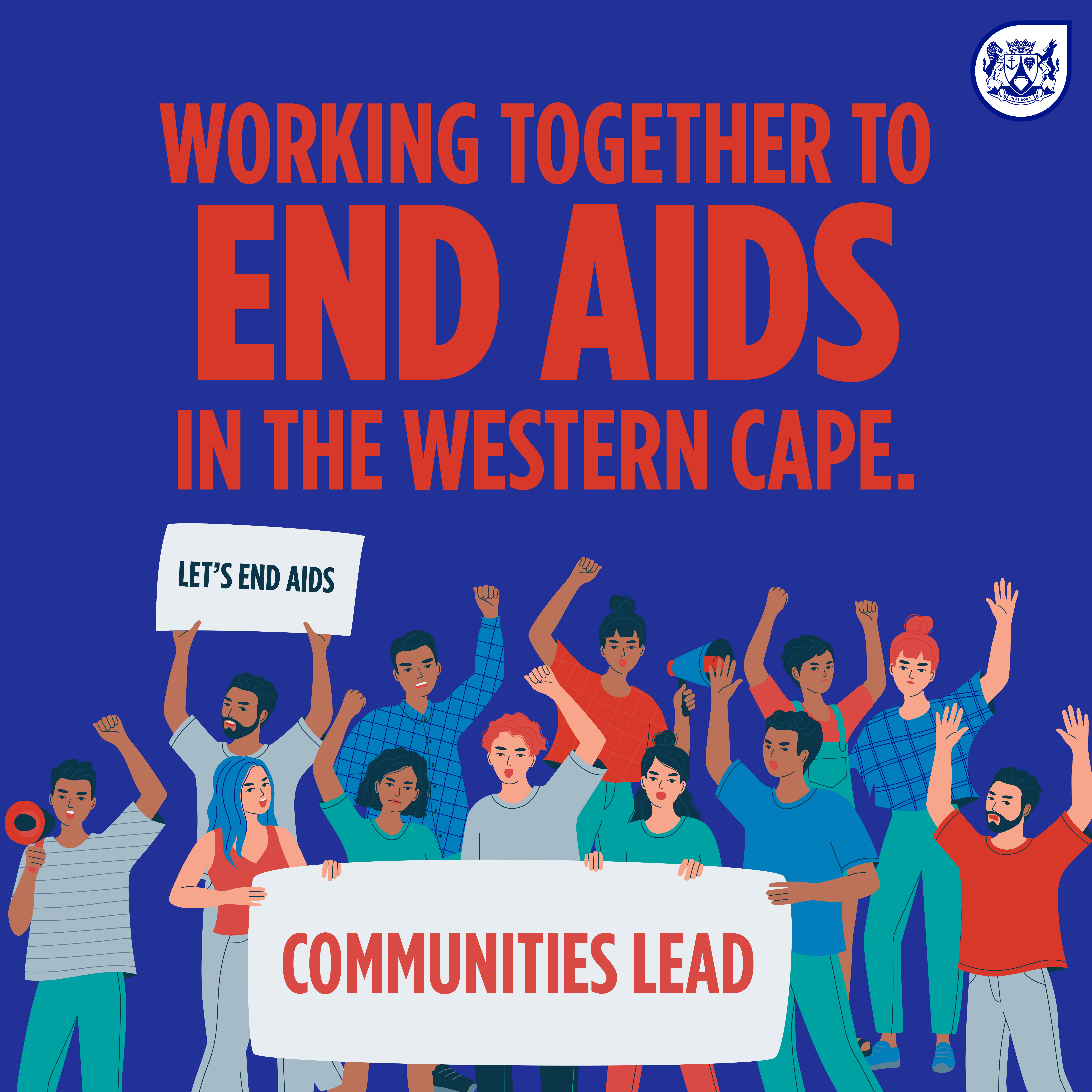
News
Local community interventions are central to achieving the end of AIDS in the WC
Local community interventions are central to achieving the end of AIDS in the Western Cape (WC)
The Western Cape Department of Health and Wellness acknowledges the crucial role of communities living with and affected by HIV in the multisectoral response in the province. Every day, they help us deliver accessible HIV and sexual and reproductive health services grounded in people’s needs and where they are, improve understanding of HIV prevention and treatment, and monitor the implementation of our policies and programmes. It is fitting to commemorate this year’s World AIDS Day together with communities and stakeholders on 1 December 2023, under the theme “Let communities lead”.
While people diagnosed with HIV have access to free, effective treatment and care, the disease continues to contribute considerably to the burden of disease in the Western Cape. At the end of March 2023, it was estimated that approximately 531 021 people were living with HIV in the province, with around 500 263 (94%) knowing their HIV status and 340 058 (68%) on treatment. Currently, HIV accounts for the fourth highest number of deaths (5.7%) in the province. This affects individuals between 15 -44 years the most.
The province has committed itself to 95-95-95 targets for ending AIDS by 2030, which means 95% of people living with HIV know their HIV status; 95% of people who know their status are on treatment; and 95% of people on treatment are virally suppressed (a blood test result that means treatment is working effectively). Despite progress on our targets, far too many people who are on treatment do not have quantities of HIV so small that it is undetectable. As of March 2023, nearly 190 000 persons living with HIV were not on antiretroviral therapy (ART) with women accounting the most of those individuals who need to be supported.
If diagnosed early and with the right treatment, people with HIV can expect to live a normal life, in the same way as everyone else. Not only does our Provincial Implementation Plan (PIP) for the National Strategic Plan (NSP) for HIV, TB and STIs 2023 – 2028 sets out our commitment to end HIV as public health threat by 2030, it also sets out the framework for how, together with communities, we will realise our ambitions over the coming years.
The PIP envisions the province adopting localised responses to deliver on our HIV commitments. There is greater focus on embedding services within the Community Oriented Primary Care (COPC) model which are designed to enable everyone in the community to contribute to and benefit from health and wellness. The approach allows for priority setting at a local community-level with the appropriate stakeholders and leverages resources within communities.
The province already offers HIV services through community/ adherence clubs where residents can easily access HIV testing and treatment. Our Wellness Centres continue to provide HIV medication services, health promotion and a range of disease prevention services from community venues.
“Local community approaches are most critical to ending AIDS as a public health threat one day, and that means focusing our efforts on reaching those individuals least likely to benefit from existing HIV service approaches in communities. Because communities understand their own needs and the barriers that they face better, through a whole-of-society approach, they can help us identify strategies to reach those who need our healthcare services the most. With their involvement, we can further minimise the global health threat that is HIV/AIDS in the Western Cape,” said Dr Keith Cloete, Head of Department, Western Cape Department of Health and Wellness.


